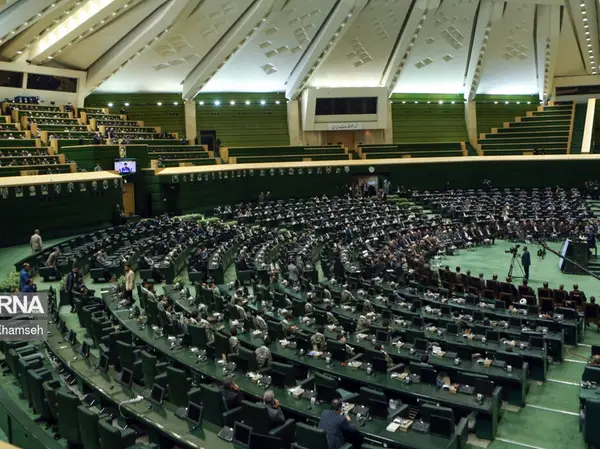With the announcement of the disqualification of thousands of candidates in November 2023, the orchestrated parliamentary elections in Iran reached a new low.
However, this was not the first step in this process. For the first time in the Islamic Republic, a “pre-registration” stage was introduced, instructing potential candidates to submit their required documents on the Ministry of Interior’s website.
More opportunities to disqualify
The introduction of this pre-registration stage, which occurred several months before the official registration, aimed to provide more opportunities for the interior and intelligence ministries, and the Guardian Council to scrutinize applicants’ files, align them with the standards of provincial monitoring boards, and expedite the review process. The Ministry of Interior and the Guardian Council, now working in close coordination, feared that individuals who had previously passed their filters might later be disqualified if their online activities, such as “inappropriate” tweets or photos, did not meet the standards of the provincial monitoring boards in terms of lifestyle and obedience to the core of the regime. This allowed the government to disqualify candidates in two stages, avoiding the sudden disqualification of tens of thousands of individuals all at once.
Absolute Obedience
The main condition for passing these various sieves was not political independence or a criminal background, but rather absolute obedience. This condition has been explicitly emphasized by hardliner regime insiders: “Absolute guardianship [rule by Supreme Leader] is not enough; absolute obedience must also be next… The condition for people to participate in the battle is absolute obedience. Obedience is important, and the first principle of stability is absolute obedience to the Guardian Jurist,” a firebrand cleric Morteza Aqa-Tehrani said.
New Totalitarian Parties: Sharyaan And Azma
The 11th Majles elections in 2020 was the end of the presence Reformists’ and the moderates in the parliament. Hardliner allies of Supreme Leader Ali Khamenei blocked most of them from getting elected to parliament, using the Guardian Council’s candidate vetting scheme. The new generation of the totalitarian hardliner faction, embodied in Paydari (endurance) party, paved their way to power by dominating the 12th parliament. They have launched two new parties recently: Sharyaan and Azma.
The members of Sharyaan (Persian acronym for the strategic network of supporters of the Islamic revolution) are mainly the high-ranking managers of the Raisi administration whose goal is to curtail the political influence of the Paydari Party and “Shana” (the Revolutionary Forces Coalition Council), which works under the general supervision of Haddad Adel, a close ally of Ali Khamenei. In the statement of this group, there are no policy recommendations and program for the country. They have announced their intention only to create a network for streamlining and gaining government positions. The key person of this group is Hamid Rasa`ee, who has a serious conflict with Mohammad Bagher Ghalibaf, the speaker of parliament, in terms of filling posts with their cronies.
Hossein Allah Karam, a member of Hezbollah, has also launched a party called Azma to participate in the upcoming elections. His party’s agenda is to enforce Khamenei’s orders.
The members of these groups are mainly recycled from the Ahmadinejad administration, and ex-members of the Khamenei’s office who want to be promoted to higher positions. By closing the road for the previous insiders, the Guardian Council has opened the way for them to run.
Purification
In domestic politics, repression even against regime insiders has escalated. This policy of eliminating people with any sign of disobedience has been called “purification”. It targets insiders who are not 100 percent loyal to Ali Khamenei. “Today we have reached the stage of purifying the revolution and we will definitely win”, Mehdi Ta`eb, the commander of Ammar group and brother of Hossein Ta`eb, the former head of IRGC intelligence, said during the 2021 presidential elections. The Guardian Council is following this direction. By acting to stamp out “the impurity” of a part of the government, the ruling class is getting smaller.
Future implications
The result of this type of election engineering has been the entry of incompetent and corrupt people into the Majles and the abandonment of its core mission. In the 11th Majles, checks and balances were forgotten, and the legislature was not even able to draft laws, approving most executive branch bills without expertise. Dozens of investigation plans were initiated in the parliament, but due to lack of follow-up and orders from Khamenei’s office, the IRGC, and the executive branch, they were abandoned. Beyond that, the Majles has had no input in the most important affairs of the country, including a 50-percent inflation rate, astonishing government corruption, regional tensions made worse by the IRGC, and unprecedented emigration of skilled professionals.
Here are some of the scandals of the 11th Majles: manipulation of the budget figures by the Speaker after the approval of the budget in 2021; rejection of the credentials of the reformists after being elected; bribing members of the Tehran Municipality to shelve investigations; humiliation of the Speaker of the Majles by the Russian government, and reneging on the promise for transparent voting. Now these same politicians are aiming to control the fate of the 12th Majles.
The IRI 12th Majles will be another slough house where washed-up Basij and IRGC members go to spend what is left of their failed careers.






















